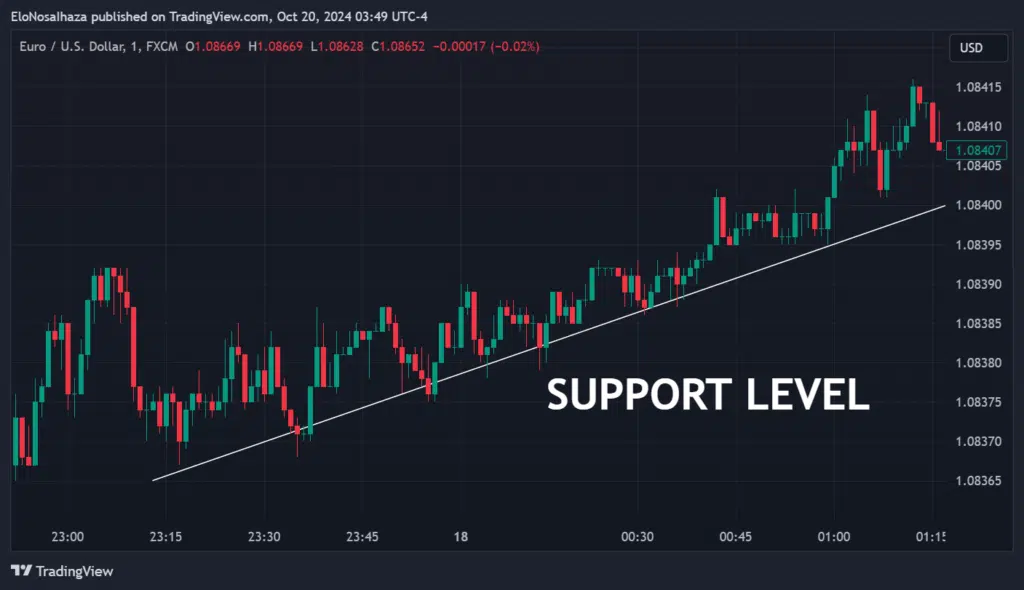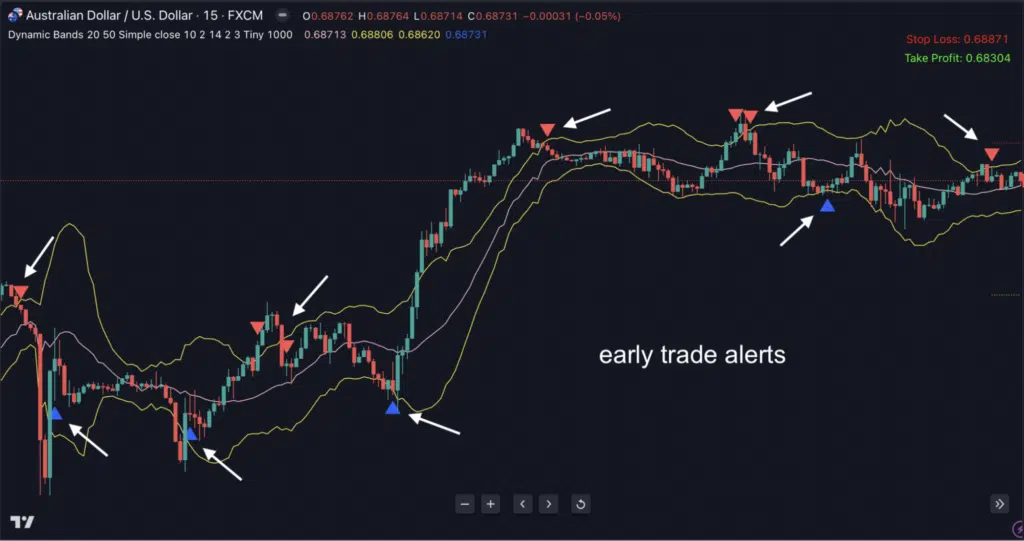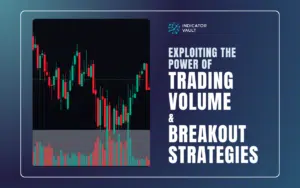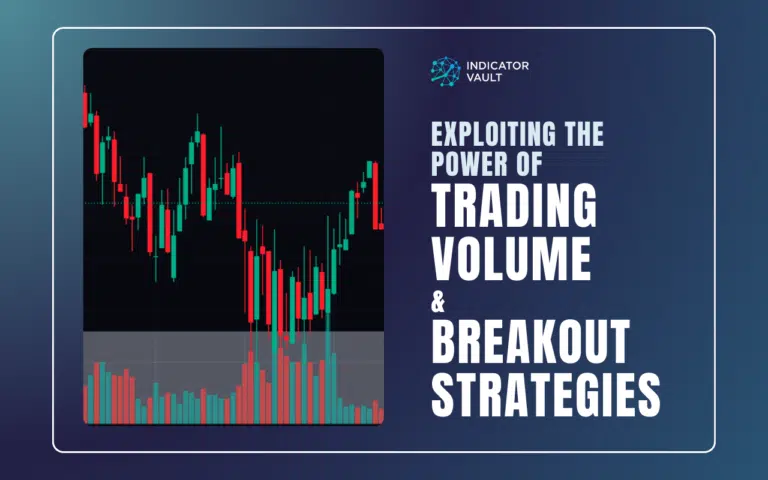Sideways markets can be tricky, but they also hold huge profit potential. Discover 6 proven tips to trade the sideways market with confidence, plus a tool that gives you the edge.
Table of Contents
1. Introduction:
If you’ve traded for a while, you know this feeling: the market isn’t trending up or down. Instead, price drifts sideways, bouncing between support and resistance. Many traders hate this type of market, they call it “choppy”, “boring”, or “unpredictable”.
But here’s the secret: sideways markets can be just as profitable as trending ones. All you need is the right plan.
In this guide, we’ll walk through 6 powerful tips that can help you thrive when markets go flat. And at the end, you’ll discover a unique tool designed to make sideways trading simpler and more profitable.
2. Powerful Tips to Profit Consistently in Sideways Markets
Tip 1: Trade With the Trend When it finally appears
Sideways markets don’t last forever. Eventually, price breaks out and when it does trends often move fast.
That’s when the safest move is to trade with the trend. Use simple tools like trendlines or Moving Averages to confirm direction.
- Break upward? Look for bullish entries.
- Break downward? Focus on bearish setups.
Traders use several tools to identify these conditions, including trendlines and indicators like the Moving Average (MA).

It can also be more or less complex by combining multiple technical tools or barely inspecting the candlesticks for breaking of swing highs and lows.
When the uptrend is strong, hunt signals that support bullish entries. When the market is bearish, seek more ideas that support bearish positions.
Sideways markets demand patience, but when the breakout comes, “the trend is your friend”.
Tip 2: Improve Risk Management Practices
Here’s the reality: sideways markets create lots of false signals. Without strong risk management, those small losses can stack up quickly.
A solid plan includes:
- Smarter stop-loss and take-profit orders
- Well-balanced risk-to-reward ratios
- Careful position sizing
Great trades mean nothing if one bad loss wipes them out. Solid risk management keeps you in the game, especially when the market chops.
Many trading experts believe risk & money management plays a more defining role in traders’ success than one’s analysis methods.
Compounding profits is easier with a solid risk management plan featuring better take-profit and stop-loss orders, improved risk-reward ratio strategy, and well-calculated position size.
If not, winning trades may never be sufficient to counteract the effects of losing ones in sideways or trending markets.
Anyone can enhance their risk management practice by researching online, taking new courses, discussing with colleagues, or learning from pros.
Enthusiasts develop new ideas, strategies, and tools continually. Thus, the study and improvement never stops.
Tip 3: Use a Trailing Stop Order
A trailing stop is like a safety net that moves with you. As price goes in your favor, the stop follows, locking in gains and protecting you from reversals.
This is especially powerful when sideways markets finally break into trends. Instead of giving profits back, you capture most of the move while letting the market run.
Nearly every platform has trailing stops built in. It’s a tool many traders overlook, but it can make all the difference.
Tip 4: Identify and Trade Within the Range
This is the bread and butter of sideways trading. Prices bounce between support and resistance, and if you can spot the range, you can profit.
Here’s how:
- Buy near support levels
- Sell near resistance levels
- Use RSI, Bollinger Bands, or channels to confirm boundaries
Pro tip: always be prepared for breakouts. Tighten your stops when price approaches the edges of the range. That way, if the market suddenly explodes out of the box, you won’t get caught on the wrong side.
Tip 5: Scale into Positions After Breakouts
Scalping means building a trade step by step, instead of jumping in all at once.
This works beautifully when sideways ranges break into strong trends. Start small, then add as momentum builds. It reduces risk early on, while letting you ride the new move more confidently.
Chartists can do this at any point within a trend using pullbacks in five unique ways, as discussed in another guide – Dominating 5 Profitable Pullback Trading Strategies for Optimal Returns.
As discussed, the trend must be strong enough before considering this. If not, the contrary consequences of this move can be seriously dire.
A market strongly trending has increased trading volume and minimal retracements.
Tip 6: Consider Lower Time Frames
Lower time-framed charts can magnify seemingly short price moves on higher ones. Hence, a ranging move in a sideways market may look trending in shorter periods.
Admittedly, it’s a big ask to temporarily abandon one’s swing trading model for day trading opportunities. However, this adaptation can be highly beneficial when the market has been ranging for too long.
Back- and forward-test it to perfection multiple times in simulated trading environments.
If it is too challenging with poor results, stick to other proven methods for trading consistency.
3. Achieving New Trading Milestones with Indicator Vault's Top-tier Invention
Unfortunately, several studies suggest the financial markets have more losers than winners. Consistent profit-making is easier said than done, especially for newbies.
However, Indicator Vault defies the odds with its groundbreaking discovery – Dynamic Bands for TV.
The technical tool blends the Dynamic Moving Average and Average True Range (ATR) to reveal promising opportunities in sideways markets.
It also features risk management suggestions from stop-loss to take-profit levels, bringing every user closer to automation.

Concisely, here are some benefits users enjoy from its application:
- Ability to trade profitably within a range for as long as possible
- Improved composure during market hours due to its near-automated nature
- Knowledge of the best risk management order levels per trade
- Freedom to explore any market or time frame desired
- Assurance of taking every promising opportunity, thanks to the system’s prompt alert feature
8. Conclusion
Consistent profitability in sideways and trending markets may pose a challenge. However, the following expert-proven hints work well to increase the chances of long-term success:
- Trade with the trend
- Improve risk management strategies
- Use trailing stop orders
- Identify and trade within the range
- Scale into positions
- Consider lower time frame trading
Anyone struggling to find their feet in the market should use Indicator Vault’s Dynamic Bands for TV. It combines several theories and technical tools for an automated trading solution.
Please share this article with more ambitious traders in every trading circle and leave feedback for engaging discussions below.













